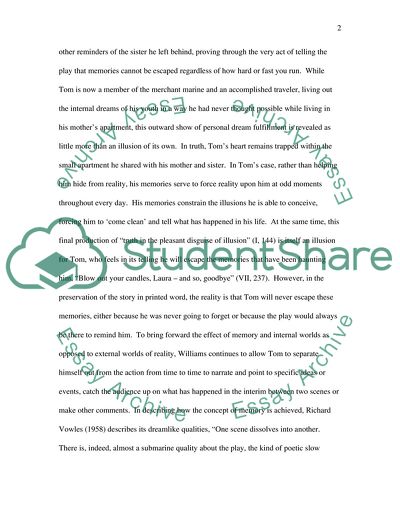Cite this document
(“The Glass Menagerie Essay Example | Topics and Well Written Essays - 1500 words”, n.d.)
Retrieved from https://studentshare.org/performing-arts/1545325-please-analyze-the-characters-internal-andor-external-conflicts-in-the-glass-menagerie
Retrieved from https://studentshare.org/performing-arts/1545325-please-analyze-the-characters-internal-andor-external-conflicts-in-the-glass-menagerie
(The Glass Menagerie Essay Example | Topics and Well Written Essays - 1500 Words)
https://studentshare.org/performing-arts/1545325-please-analyze-the-characters-internal-andor-external-conflicts-in-the-glass-menagerie.
https://studentshare.org/performing-arts/1545325-please-analyze-the-characters-internal-andor-external-conflicts-in-the-glass-menagerie.
“The Glass Menagerie Essay Example | Topics and Well Written Essays - 1500 Words”, n.d. https://studentshare.org/performing-arts/1545325-please-analyze-the-characters-internal-andor-external-conflicts-in-the-glass-menagerie.


